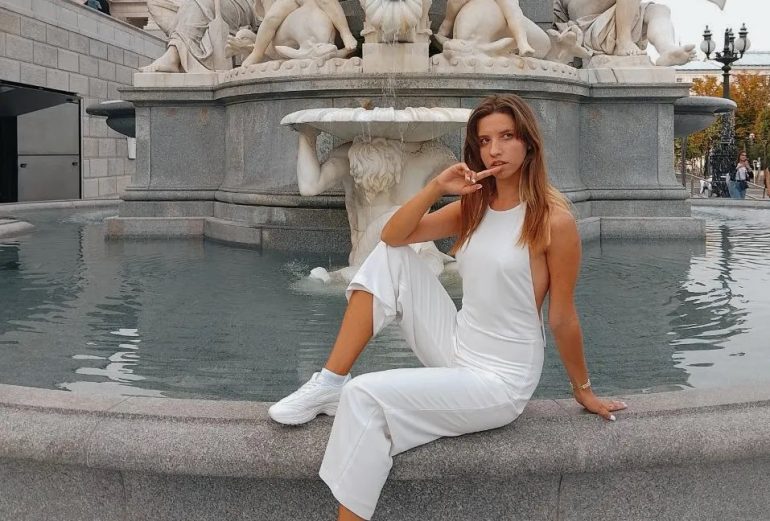At around 4 am in Kyiv, Ukraine on 24 February 2022, Anastasiia Podhorna heard a knock at her dorm room door. It was Podhorna’s friend from the neighboring room, who came with chilling words.
“Take your things, the war has started.”
A 17-year-old native of Kharkiv, Podhorna was attending university in Kyiv when the Russian invasion of Ukraine began. After being awoken, Podhorna gathered some essential items and sought shelter in the basement of her dorm building.
Around 400 people took shelter in the basement the first night of the invasion, making sleeping arrangements tight. Podhorna claimed as many as three people would share a single bed sheet on the floor.
Supermarkets soon became empty; Podhorna and others from the bunkers were forced to search the empty dorms for food and supplies.
The next day, the group began to organize. A kitchen and medical center were constructed. Roles were assigned: cooks, guards, cultural coordinators, medics and psychological support personnel were all appointed. Because she had been a member of the Red Cross before the war began and had experience with psychological counseling, Podhorna began assisting the others with mental health concerns.
On the third day following the invasion, humanitarian aid began to arrive.
For a week, Podhorna sheltered in the basement of her dorm. Every day, people would leave for their hometowns. Podhorna stated that it was especially taxing seeing those who stayed who had nowhere to return.
“It was very difficult to see Ukrainian citizens who lost everything.” Podhorna said.
Eventually, Podhorna’s brother arranged for her to travel to Lviv, Ukraine and stay with them before crossing the border into Poland. Because of the ongoing conflict, she couldn’t return to Kharkiv. A friend of Podhorna’s, also 17, joined her in Lviv to cross the border. Throughout the next night, Podhorna waited in line at the Polish border. She recalled seeing countless babies with their mothers, crying in the zero-degree temperatures.
After waiting the entire night, they had made little progress in line.
“Even after that, our queue wasn’t even close to the border.” Podhorna said.
They decided to return to Lviv and travel through Slovakia instead. The crossing into Slovakia took three hours. It was there in Košice that they also had a meal for the first time in three days.
“We could eat good food because of volunteers who helped us.” Podhorna said.
From there, they took a train across Slovakia into Prague, Czech Republic. They slept on tables, exhausted from the days of travelling. When they arrived, they took a bus to České Budějovice. This is where they began to navigate the process of acquiring a temporary protection visa.
Podhorna resided in České Budějovice for a month before moving to Brno for her studies. She found others willing to provide housing and began living in a flat with two Czech students. After three months, Podhorna’s university, the Janáček Academy of Performing Arts, began to provide social and financial support to Ukrainian refugees.
However, Podhorna claimed there has not been social help available for Ukrainians living in Brno since August 2022.
“That happened because of bureaucracy issues.” Podhorna said.
Even so, Podhorna also claimed that the application process to receive social benefits was difficult to navigate, citing faulty and confusing internet applications as a serious hurdle to overcome to get assistance.
Podhorna currently attends Karazin Kharkiv National University in Ukraine remotely, but hopes to pass the exams required to attend a Czech university and begin studying in person next year. Podhorna’s passion is theater, and she hopes to modernize the world of the performing arts. With an interest in both technology and classical theater, Podhorna plans to pioneer the way towards something new and beautiful.






